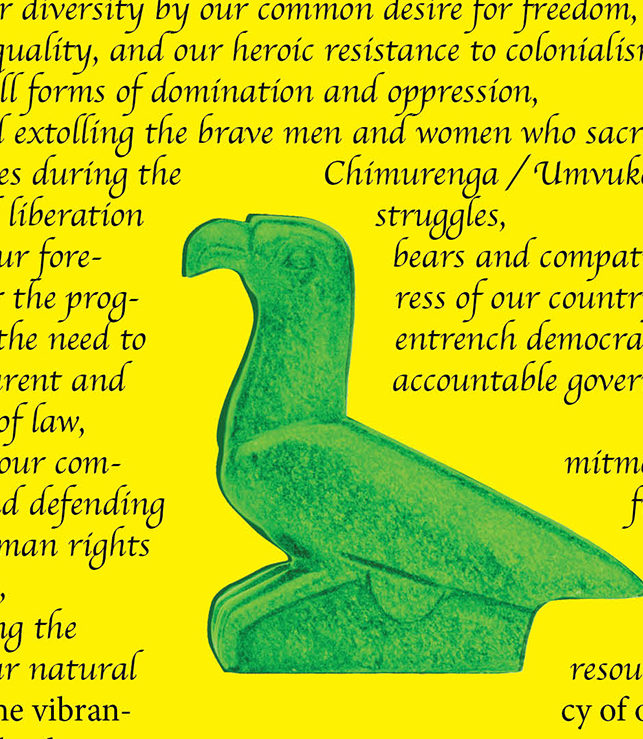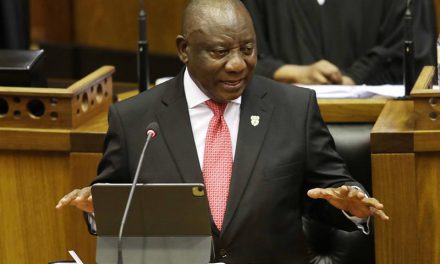EDITORIAL
The contemporary political history of southern Africa has placed constitutionalism at the forefront of the struggle for good governance. The social contract between the state and its citizens has a chequered career in those lands where an anti-colonial liberation movement has come to power, often in the form of a de facto one-party state, claiming a legitimacy which has overridden the democratic essentials embodied in charterism.
South Africa is a pre-eminent example. The fight against predators who have sought to capture the state for purposes of self-enrichment has drawn upon the armoury of that country’s 1996 Constitution, where citizens are empowered via a free press and an independent judiciary to assert their rights therein enshrined.
Constitutionalism in Zimbabwe has failed. It is of great significance that the political earthquake of the overthrow of Robert Mugabe was heralded by this statement from his key power base, the Zimbabwe National War Veterans Association: “We note with concern, shock and dismay the systematic entrenchment of dictatorial tendencies, personified by the president and his cohorts, which have slowly devoured the values of the liberation struggle in utter disregard of the Constitution.”
This special edition of Africa in Fact considers the ways in which the lack of respect for the 2013 Constitution lies at the heart of the breakdown of public services, the abandonment of
the rule of law and the ensuing drastic decline in the quality of life for the mass of the people.
The voices here are of those on the ground and well informed on the current state of governance. They are courageous voices, in a polity marked by continuing repression.
A consistent thread of argument in this edition relates to the breakdown in public services and the quality of life in Zimbabwe, the failure of the rule of law and the lack of proper respect for the 2013 Constitution.
Providing context for what is to follow, Sharon Hofisi and Eldered Masunungure give a summary and analysis of political culture of constitutionalism, a key ingredient missing
in Zimbabwe today. This article prepares the groundwork for further inquiry into how Zimbabwe’s 2013 Constitution can be mobilised effectively.
Tamuka Chirimambowa argues that the pursuit of inclusive state-society and economic relations will mean the creation of an inclusive growth model that will address poverty and
inequality. The article outlines the constituent elements, which make up what is termed economic constitutionalism, but questions remain. What exactly are the political obstacles against their implementation?
Ray Ndlovu attempts to answer why new president Emmerson Mnangagwa’s pronouncements on constitutionalism amount to empty rhetoric. Was he ever really serious at all about the proposed reforms? Is he unable or unwilling or simply compromised in his ability to confront the vested interests which inhibit reform? What are these interests, why is he unwilling or unable to step forward and over them?
The collapse of effective local governance is clearly at the heart of what has been, and is, going wrong in Zimbabwe. Our article on a recent GGA – Zimbabwe Citizen Engagement
study in Harare, Masvingo, Bulawayo and Mutare on basic services and how wards are managed shows that the majority of citizens are unhappy with service delivery, despite a high level of access to services. Barnabas Thondhlana’s article touches on some of the key reasons for this, namely the arrogation of power and privileges to the centre, starving the lower tiers of society of resources and concentrating wealth among the administrative and political elite.
Musa Kika examines the role of the Zimbabwean courts and the separation of powers, arguing that if Zimbabwe is to be true to its democratic identity, the courts and the rule of law are indispensable in facilitating economic development.
Reason Beremauro examines the ways in which different forms of social protection or social security are recognised in Zimbabwe’s Constitution and how these provisions find expression in the everyday lives of individuals, giving form and shape to the nature of contemporary political and social affairs in Zimbabwe.
Veteran Zimbabwean journalist Hopewell Chin’ono provides an excellent review of the embattled relationship between press freedom and repression, and the changing picture brought about by new communication technology.
The rise of the one-party state and the destruction of free and fair elections have been central to the decline of the polity and economy of Zimbabwe. Edknowledge Mandikwaza
and Gilbert Tinashe Zvaita summarise the key steps in this process, making a good case for a change in the electoral system to that of proportional representation; does this run against the grain in a country with such a sharp urban/rural divide?
Zimbabweans in the diaspora have accused the government of discriminating against someof its citizens by allowing only a small minority holding diplomatic posts the privilege of voting abroad. Chipo
Dendere tackles the complex and vexing relationship between Zimbabwe’s reliance on remittances, while denying those in the diaspora the opportunity to vote.
With mining so important to the national economy, human rights lawyer and environmental activist Nyaradzo Mutonhori warns that key pieces of legislation are found wanting when
addressing recent environmental concerns such as hazardous waste, the emission of “greenhouse” gases, leaking underground storage tanks, or environmental emergency “preparedness” plans.
The progressive provision on environmental rights in the Constitution, Mutonhori says, can only be realised by aligning key environmental legislation to the Constitution.
Prue Mutumi’s article on water provision goes to the heart of the failed relationship between those concerned with the administration of public goods and citizens, particularly
in urban areas.
Finally, Yunus Momoniat, in reviewing a recently released book written by Ray Ndlovu, in his article Senility, a Doting Mad Wife and an Indulgence in Spies, describes the self-serving
tyranny which brought about the collapse of Zimbabwe’s economy.
DR SHOLTO CROSS is special advisor to GGA.







